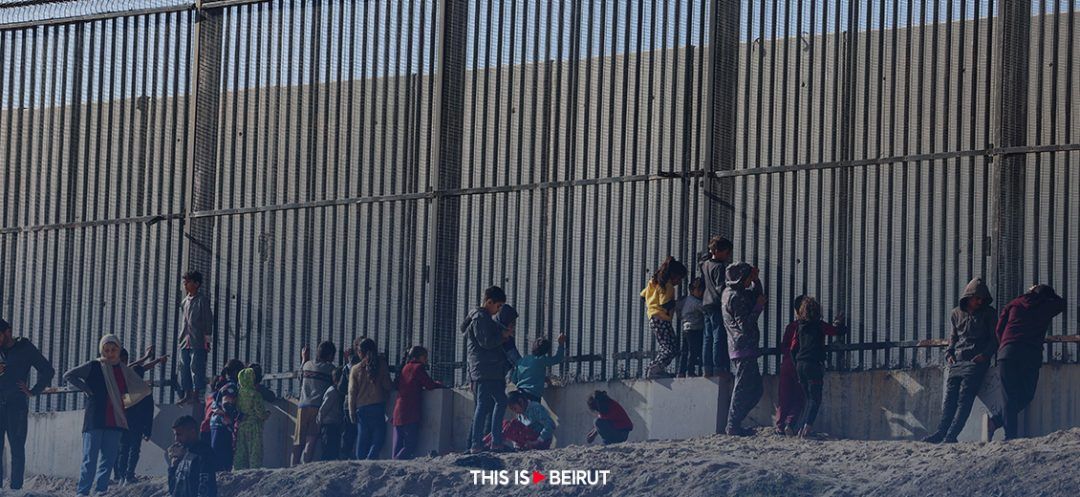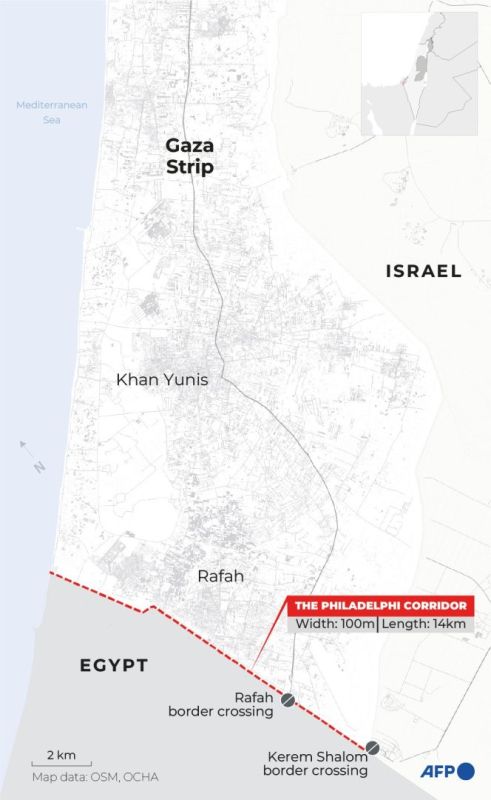- Home
- War in the Middle East
- Tensions Rise Over Philadelphi Corridor Between Egypt and Gaza

Over the past two weeks, the Philadelphi Corridor, adjacent to the Egyptian border with the Gaza Strip, has become a point of contention between Egypt and Israel.
Diaa Rachwan, the director of the Egyptian Information Service, stated on Monday night that "any Israeli initiative aiming to occupy the Philadelphi Corridor (known as Salah Al-Din in Egypt) in the Gaza Strip would constitute a threat to relations with Israel."
He rejected the "false allegations" from Israel regarding arms smuggling through tunnels. The Egyptian official had also called on Tel Aviv to conduct internal investigations within its military and state agencies to determine who was truly behind this smuggling. But what is the Philadelphi Corridor?
This corridor is a strip of land 14km long and 100 meters wide along the border between Egypt and the Gaza Strip, extending from the Mediterranean to the Karm Abou Salem (Kerem Shalom) crossing point. The corridor includes the Rafah crossing to Egypt — the only outlet from the strip not controlled by Israel — and divides the city of Rafah into two: the Palestinian side and the Egyptian side.
This designation originated in 1979 with the Camp David Peace Accords between Egypt and Israel. While the Sinai was returned to Egypt, the goal of the corridor was to serve as a buffer zone and was placed under Israeli control at the time to guard against any attack or weapons circulation to Gaza.
In 2005, control of this corridor passed to Cairo when Tel Aviv decided to withdraw its troops from Gaza. Egypt was then authorized by the "Philadelphi Accord," and for the first time since the peace treaty, to deploy 750 lightly armed border guards. It also committed to collaborating against any arms trafficking at its border, while the other side was controlled by the Palestinian Authority. This was without counting the rise to power of Hamas in Gaza in 2007.
The Philadelphi Accord stipulates that it does not constitute amendments to the peace treaty with Israel, meaning the Philadelphi Corridor and East Sinai (adjacent to the Gulf of Aqaba and the border with Gaza) remain demilitarized zones.

Egypt's Position
During a press conference last week, Israeli Prime Minister Benjamin Netanyahu claimed that Hamas continued to smuggle weapons and that the war would not end until this breach was closed. On December 30, he also stated his intention to take control of this strip of land.
The director of the Egyptian Information Service responded, stating that any Israeli initiative in this direction would threaten relations between Egypt and Israel. Egypt fears that an attack on Rafah could trigger a flow of Palestinians into Sinai. Recall that over a million Gazans are crowded in Rafah, having fled Israeli offensives on the strip for nearly four months. If the Israeli Army attacks Rafah, they will have nowhere to go. In the past, in 2008 and at the beginning of the blockade imposed by Israel on Gaza after Hamas took power, thousands of people passed into Egypt following the destruction of the border wall by Hamas.
According to the AP agency, Israel officially asked Egypt in mid-December to deploy its forces in the corridor. Egypt had refused, fearing that a ground operation in the region would bring thousands of Palestinians into Sinai. Since the beginning of the war, Egypt has strongly opposed calls for a Palestinian exodus, fearing they will not return home once the war is over, just like the refugees from 1948 who are still in various host countries.
Strategic Stakes
If Egypt abandons the corridor, it will lose control of the Rafah crossing, which grants it significant influence in Palestinian affairs. Moreover, it would give it the label of being pro-Israel and participating in the siege imposed on the Palestinian people of Gaza.
Strategically, Gaza is a pillar of Egyptian national security, and any Israeli encroachment would represent an infringement on Egyptian sovereignty with repercussions on the country's security, creating a new Israeli presence along the border between Gaza and Egypt.
This dispute is also a significant issue for Israel. Netanyahu wants to reassure his increasingly critical fellow citizens about his management of the war and the hostage fiasco. If he stops his offensive without taking Rafah, he will not achieve his main "objective" of the war, which is to destroy Hamas. However, by pushing all the way to Rafah, he risks compromising the essential foundation of his stability, the peace agreement with Egypt, and upsetting his closest ally, the United States.
Read more




Comments